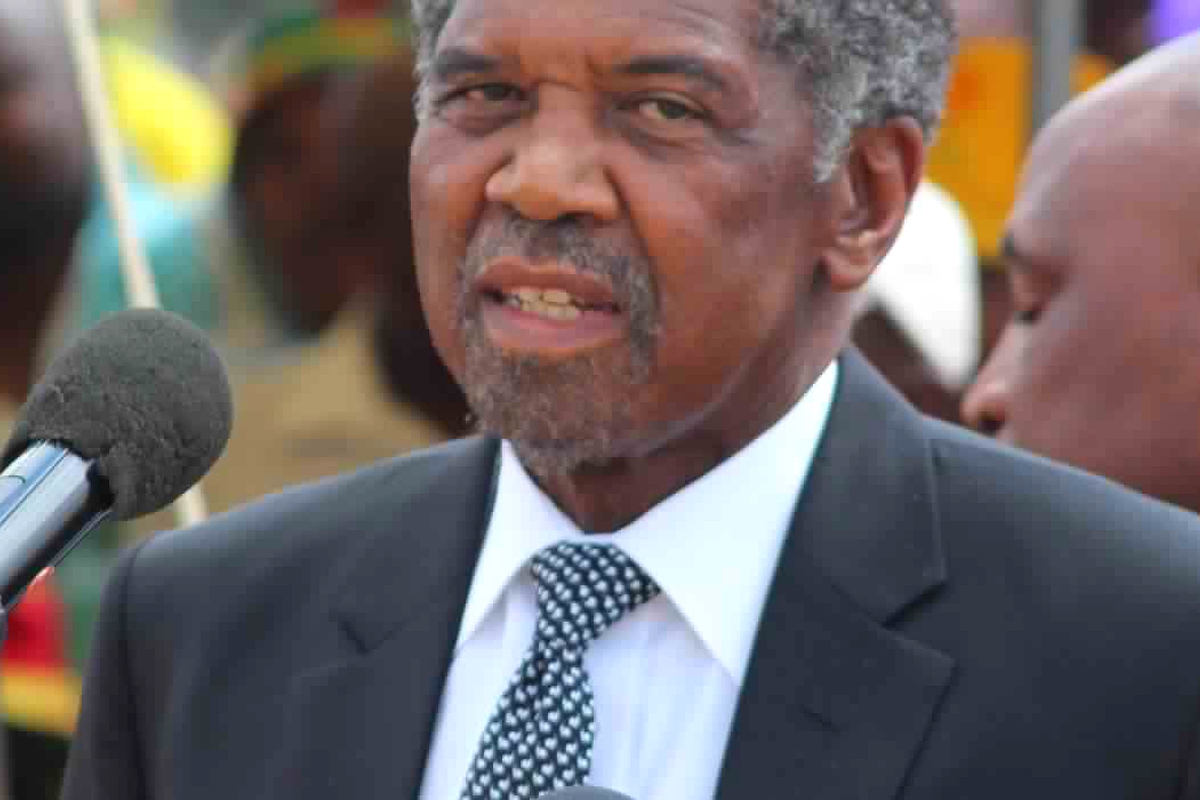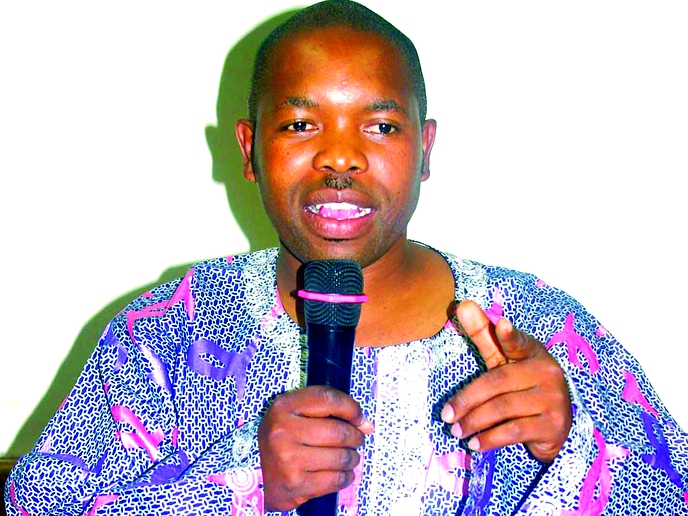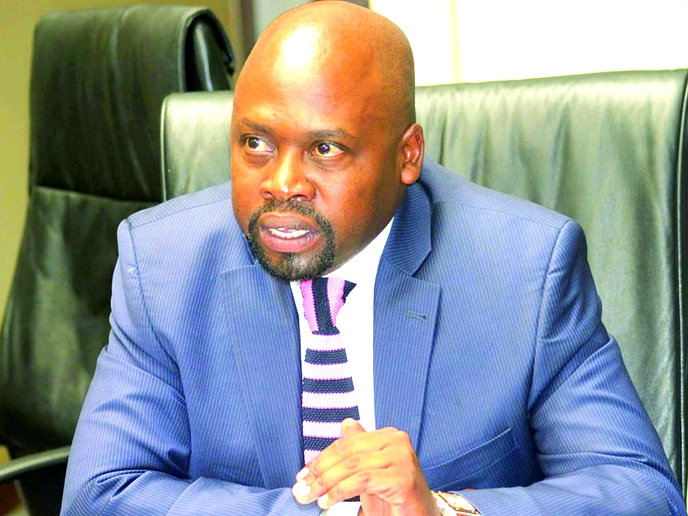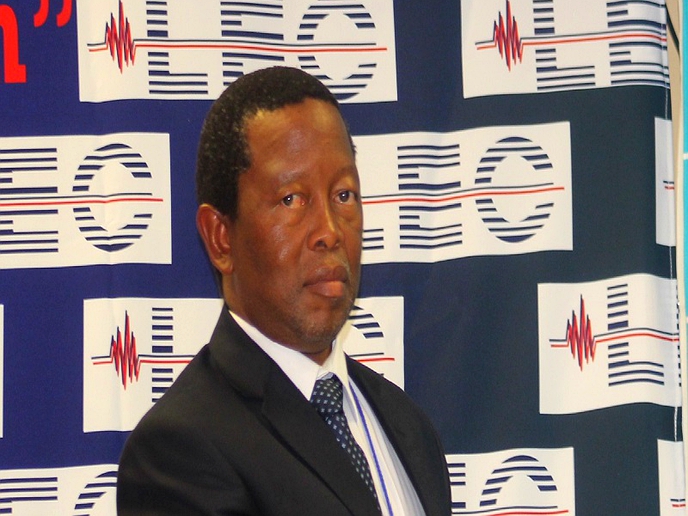Deputy Prime Minister Monyane Moleleki has said economies are driven by hardworking men and women in the informal sector throughout the world. He was speaking at the centenary celebration of the International Labour Organisation (ILO) in Maseru under the theme, 'Promoting the Transition from Informal to the Formal Economy in Lesotho'.
business
May 24, 2019
STAFF REPORTER
7 min read
Informal sector drives economies: Moleleki

Deputy Prime Minister Monyane Moleleki
He said Lesotho has adhered to the ILO Director General's call for member states to celebrate the centenary. Mr Moleleki noted that informal sector workers face various dangers at work such as diseases which can be caused by untidiness while climate change affects them more than formal employees hence in 2015 the International Labour Conference embraced Recommendation 204 which is intended
to ensure that street vendors, herders as well as domestic workers work under a protected environment.
He added that it is through the assistance of ILO that Lesotho has embarked on implementing the targets of the recommendation. “Among other government achievements includes the passing of the Labour Policy and government is also at an advance stage in the reforms of the Labour Code Order of 1992 with the intention to include protection and well-being of workers in the informal sector,” he added.
Enjoy our daily newsletter from today
Access exclusive newsletters, along with previews of new media releases.
Mr Moleleki indicated that pillars of Recommendation 204 include negotiations between workers and employers, as well as government, which he said they are already practicing as they are engaging with committees like the National Advisory Committee on Labour (NACOLA), the National Advisory Committee on Safety and Health (NACOSH), Industrial Relations Council (IRC) and the Wages Advisory Board (WAB). He, however, expressed disappointment that there were no workers and employers’ representatives on the issues to be discussed in this celebration.
He indicated that government is yet to implement some measures which will benefit employees which include social security, workmen’s
compensation, maternity leave, sick leave, pension (to move away from now when people wait to be 70 years old to access pension for the elderly), working conditions which will determine working hours, wages as well as occupational safety and health.
Mr Moleleki further noted that it is high time informal sector workers were assisted in the growth of their businesses through access to finance while equipping them with marketing skills. He called on all stakeholders to ensure that child labour becomes a thing of the past in Lesotho saying the practice denies children of a chance to be children adding that children should have access to education. “We have to have an action plan on elimination of child labour and ensure that children do not work but play,” he emphasised. He appealed to social partners which are workers’ and employers’ organisations to deal with Recommendation 204 issues together for the benefit of Basotho and Lesotho.
Mr Moleleki thanked ILO for the unwavering support it has shown to Lesotho in creating the conditions of social justice. At the same event, United Nations Resident Co-ordinator, Salvator Niyonzima, paid tribute to ILO because for the last 100 years, this organisation has consistently promoted the notion that people should be at the centre of real progress. He said for years governments, workers, and employers of the world have come together, moved by the conviction of the ILO's founding fathers that universal and lasting peace depends on social justice and by a common determination to work together for social justice.
“Along this journey of 100 years there has been numerous endeavours and achievements in the workplace but there has also been challenges therefore we should celebrate achievements and learn lessons from challenges and shortcomings. “From the early years of mere survival to date the organisation has seen its membership grow; today 186 countries in the world are members of ILO and its contribution to global peace and to the victories of humanity against negative ideological and political systems and the charting of the decent work agenda stand at the centre of the world's road map for the future,” he added.
He stated that looking into the future of work and the next 100 years, they need to continue to place decent work at the centre of macro and socio-economic policies and programmes as a way of ensuring that no-one is left behind in line with the sustainable development goals. A people-centred agenda puts a premium on the promotion of decent work and, as such, the government of Lesotho and all Basotho need to continue to advocate and lobby for employment opportunities and labour issues in national and regional planning frameworks, he added. “As we celebrate 100 years of the ILO globally, we also celebrate 53 years of support to government, employers and workers of the Kingdom of Lesotho, the UN family is acutely aware of the challenges of today and of the future. “Together we can work towards a better, brighter future for all Basotho through the National Strategic Development Plan II (NSDP II), the United Nations Development Assistance Framework (UNDAF) and the Decent Work Country Programme (DWCP) for Lesotho,” he added.
Mr Niyonzima called on all to focus on those who suffer most from decent work deficits, that is, the informal economy workers and informal businesses. He added that the UN recognises that the high incidence of the informal economy in all its aspects is a major challenge for the
fundamental principles and rights at work, social protection, decent working conditions, inclusive development and the rule of law. This has a negative impact on the development of sustainable enterprises, public revenues and the government's scope of action, particularly with regard to economic, social and environmental policies, the soundness of institutions and fair competition in national and international
markets. He further indicated that the UN therefore supports the government initiative to sign the Maseru Declaration which renews its
commitment to facilitating the transition from the informal to formal economy in the country today.
Mr Niyonzima then reaffirmed their commitment to support the government, employers and employees’ organisations to create the conditions of social justice saying together they should lay the foundation of decent work and pave the way. On behalf of employers’ organisations Hlalele Ts'olo said ILO has done a lot to extend its unshakable support for the Kingdom of Lesotho in terms of implementation of different programmes relating to decent work and social justice. He said achieving the goal of decent work in a globalised economy requires action at international level saying ILO has therefore contributed to attainment of decent work by elaborating and promoting international labour standards which are aimed at ensuring that economic growth and development go along with creation of decent work.
Mr Ts'olo noted that Recommendation 204 is the first international labour standard that addresses the informal economy in its entirety, adding it not only affords for transition from the informal to the formal economy but also provides a detailed practical guidance across many political areas such as employment policy, social protection and improvement of working conditions. “We therefore believe that in our role as the most representative employers’ organisation and the voice of business in Lesotho, in attainment of a smooth transition we should make ourselves known to those who are already working in the informal economy so that they may see the need and importance of being part of our organisation,” he added.
He mentioned that they should influence policymakers to develop policies that help overcome barriers to entering the mainstream economy and also for them to develop policies and incentives to encourage informal economy operators to make the transition to the formal economy so that they may be covered by the normal business regulatory framework. On the other hand, workers' representative Paul Sematlane said the day is very important to them as the workers of Lesotho because it has provided the right platform for them to talk about the ILO and its activities, to look back and assess what the workers have achieved through ILO political and technical assistance.
He stated that ILO differentiates itself from other organisations by its unique structural arrangement of tripartite constituents of governments, business and labour further noting the principle of social dialogue keeps them working in harmony for the sake of social justice and decent work. He congratulated the government of Lesotho for having been selected into the ILO governing body saying this is a very huge responsibility which requires a member state which is compliant with all its ratified International Labour Conventions.
Mr Sematlane added that they are very much aware of some deficits of compliance in some of the sectors in the country like Convention 98 in the education sector and Convention 87 in the public service. “We are also aware that our wage fixing machinery has attracted a lot of challenges in the recent past which are likely to call for a review of the machinery to be adequately understood by all the social partners,” he added.
Mr Sematlane highlighted that the workers group of Lesotho is highly committed towards supporting all initiatives aimed at promoting transition from the informal to the formal economy. He, therefore, called on the government to start preparing for the ratification of Convention 151 in the public service and Convention 189 for domestic workers and to finalise the enactment of the new Labour Law. ILO was established in 1919, it has 186 member states including Lesotho, which has now been a member for 44 years.
Additional reporting by Lena
Tailored for you






